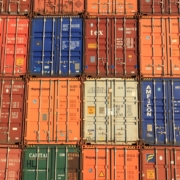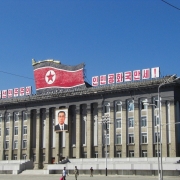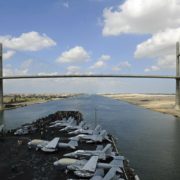What is the purpose of the ASEAN Regional Forum?
Topic of Study [For H2 History Students]:
Paper 2: Regional Conflicts and Co-operation
Source Based Case Study
Theme III Chapter 2: ASEAN (Growth and Development of ASEAN: Building regional peace and security)
The ASEAN Regional Forum
On 25 July 1994, member nations of the regional organisation gathered in Bangkok to establish the ASEAN Regional Forum (ARF). Its purpose was to engage external powers and foster extra-ASEAN relations. By doing so, the peace and security of the Asia-Pacific region is maintained.
1. to foster constructive dialogue and consultation on political and security issues of common interest and concern;
2. and to make significant contributions to efforts towards confidence-building and preventive diplomacy in the Asia-Pacific region.
Excerpt from the inaugural ASEAN Regional Forum, 25 July 1994.
Facing Goliath: The South China Sea dispute
After the end of the Cold War, ASEAN had to deal with the challenges arising from a multi-polar world. One such challenge revolved around the South China Sea territorial dispute.
It was a contentious case not only because of the linked interests with the Chinese authorities, but also other member nations such as the Philippines and later Vietnam.
However, in the case of the South China Sea, “internationalizing” the issue served for a while as additional leverage against China’s power. Indeed, a few months after the first ARF ministerial meeting, in February 1995, the Philippines publicly complained about the discovery of Chinese facilities on Mischief Reef, off the Philippine island of Palawan.
[…] After the senior officials’ meeting in Hangzhou, the ARF has talked routinely about the South China Sea as a regional-security concern in open meeting, but without addressing the merits of individual claims or the need for other powers to intrude into the disputes.
An excerpt from “The ASEAN Regional Forum” by Rodolfo C. Severino, published in 2009.
As brought up by the former ASEAN Secretary-General (1998-2002), the ARF was a suitable platform to bring up sensitive issues without escalating them into troubling disputes.
The repeated focus on such topics as regional security matters have helped to align the perceptions of stakeholders, even though there were unfortunate flashpoints.
ARF can only work as fast and potently as ASEAN does. ASEAN centrality is its core identity. Some see that as a hindrance; in reality, the ARF continues to function because it provides a buffer between contending positions. The value of the ARF is precisely this space that it provides between growing contention within the USA, Quad, and China.
An excerpt from an opinion piece titled “Is the ASEAN Regional Forum still relevant?” by Gurjit Singh, published on 19 August 2021.
Although ASEAN had encountered obstacles in managing maritime disputes, particularly in the South China Sea, there were noteworthy achievements due to opportunities presented by the ARF.
Despite its relentless efforts to militarize the South China Sea, however, China has also shown diplomatic pragmatism in dealing with the Southeast Asian countries. On 18 May 2017, China and the ten member states of ASEAN announced that they had finally agreed on a framework for a code of conduct on the South China Sea. On 6 August 2017, the ASEAN and Chinese foreign ministers endorsed the framework for the negotiation of a COC (Code of Conduct). The agreement on a framework agreement is an incremental step toward the creation of a conflict-management mechanism for the South China Sea dispute.
An excerpt from “The ASEAN Regional Forum in the Face of Great-Power Competition in the South China Sea: The Limits of ASEAN’s Approach in Addressing 21st-Century Maritime Security Issues?” by Renato Cruz De Castro.
What can we learn from this article?
Consider the following question:
– To what extent was the ARF effective in keeping ASEAN relevant in the post-Cold War world?
Join our JC History Tuition to grasp the theme of Regional Conflicts and Cooperation, which features causes and consequences of inter-state tensions and the role of ASEAN. The H2 and H1 History Tuition feature online discussion and writing practices to enhance your knowledge application skills. Get useful study notes and clarify your doubts on the subject with the tutor. You can also follow our Telegram Channel to get useful updates.
We have other JC tuition classes, such as JC Math Tuition and JC Chemistry Tuition. For Secondary Tuition, we provide Secondary English Tuition, Secondary Math tuition, Secondary Chemistry Tuition, Social Studies Tuition, Geography, History Tuition and Secondary Economics Tuition. For Primary Tuition, we have Primary English, Math and Science Tuition. Call 9658 5789 to find out more.











